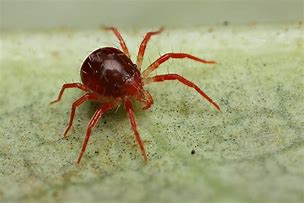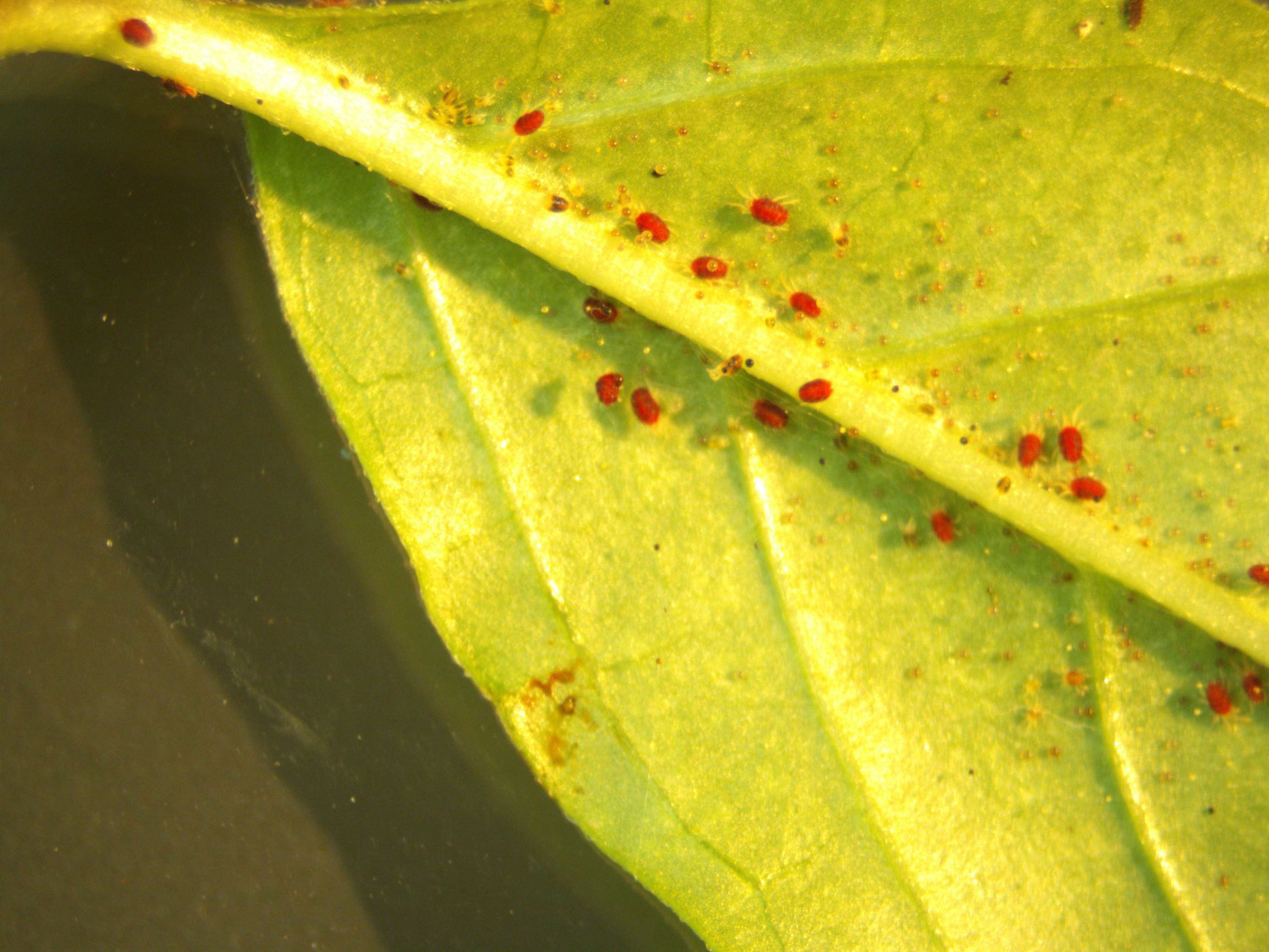When the Summer heat starts, I’m always on the lookout for a destructive little pest called spider mites. True to its name, this sap sucker is an arachnid, not an insect. While oftentimes an infestation will not kill a host plant outright, it can certainly weaken it to where it can be susceptible to other insects or diseases. They are common and will attack any plant suffering from summer heat stress and drought.
How to Spot Spider Mites
Spider mites tend to be advantageous, preying on plants that are already stressed by the summer heat and lack of water. They do have preferred host plants, here’s a few to keep a close eye on, and give supplemental watering to as needed to lessen their impact.
- Roses
- Spruce
- Brambles (blackberries, raspberries)
- Broadleaved evergreen (azaleas, boxwood)
- Burning bush
When Scouting for Spider Mites Look For:
- Dappled, stippled leaves that are off-colored, sometimes with a yellowish cast to its appearance
- A fine, gossamer webbing, and small dust-like spots on the undersides of leaves
Tapping a leaf or branch with a piece of paper underneath will help you determine if you have this pest. They can overtake a plant rather quickly, so if you spot them, I recommend swift action.
How to Control Spider Mites
As mentioned earlier these pests are arachnids, not insects. Most insecticides will not be effective against them, so a miticide is required. My personal go-to is Malathion or any product with bifenthrin as the active ingredient. Bifenthrin can remain active on plants for almost a month, giving the plant a good chance of repelling multiple generations of the pest. If you are looking for a product with less of an environmental impact, I recommend using Bonide Captain Jacks Dead Bug Brew. It is a biological insecticide that is effective in controlling spider mites.
In conclusion
As I always say, “an ounce of prevention is worth a pound of cure”. Since most insects tend to go after weaker, struggling plants, it behooves us to give our plants the best care that we can. Keeping your plants on a consistent watering and fertilizing regimen will keep them happy, healthy, and less susceptible to insects and diseases. If you ever have questions, please don’t hesitate to come by and see us at Colonial Gardens for all your plant care solutions!
Thank you for your thyme!
Written By Trav the Tree Guy, Travis Morcha


